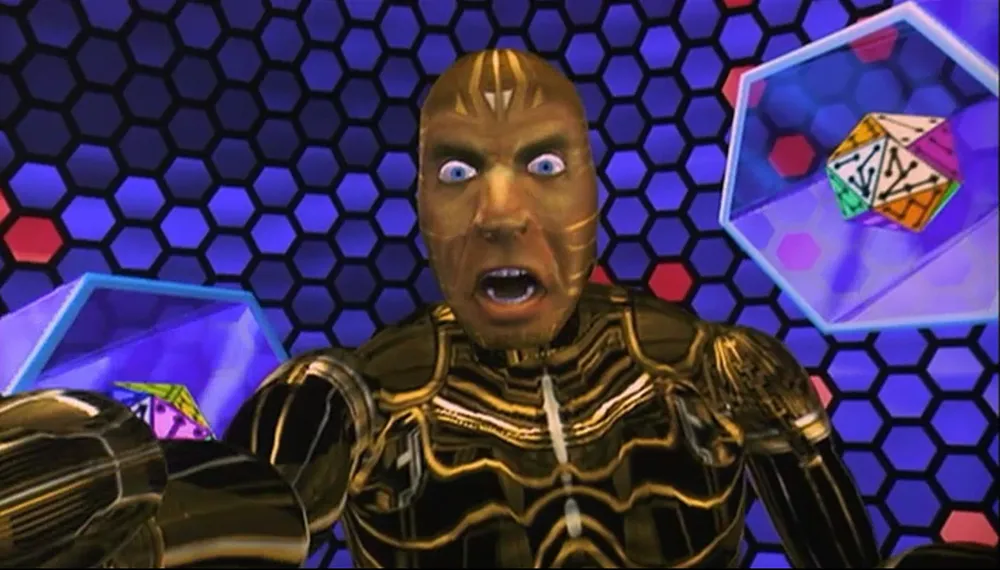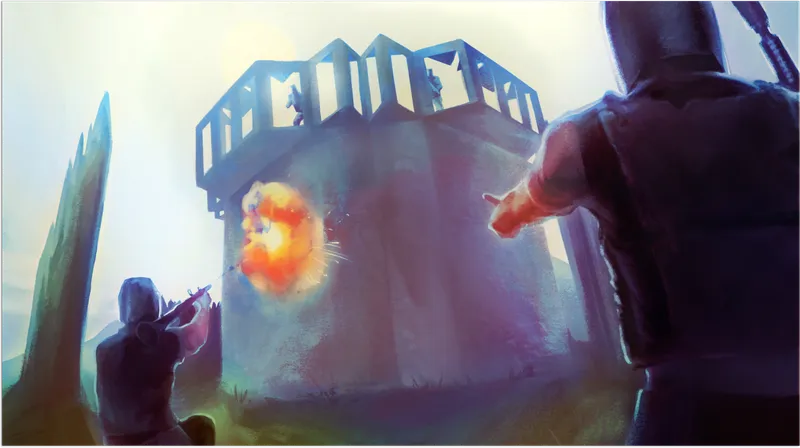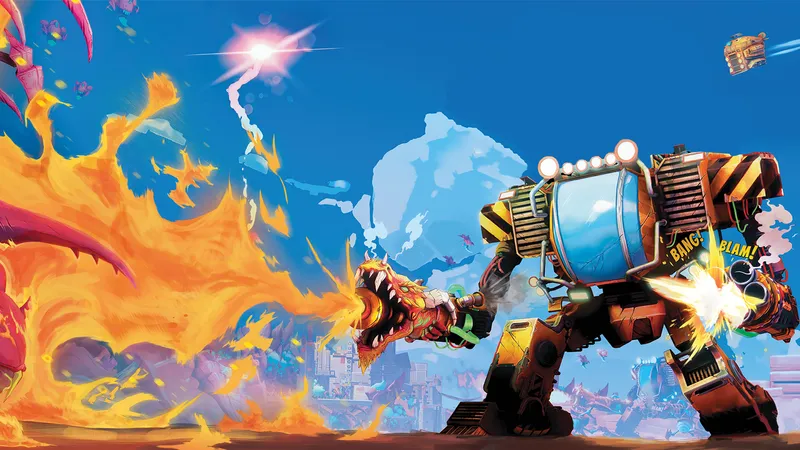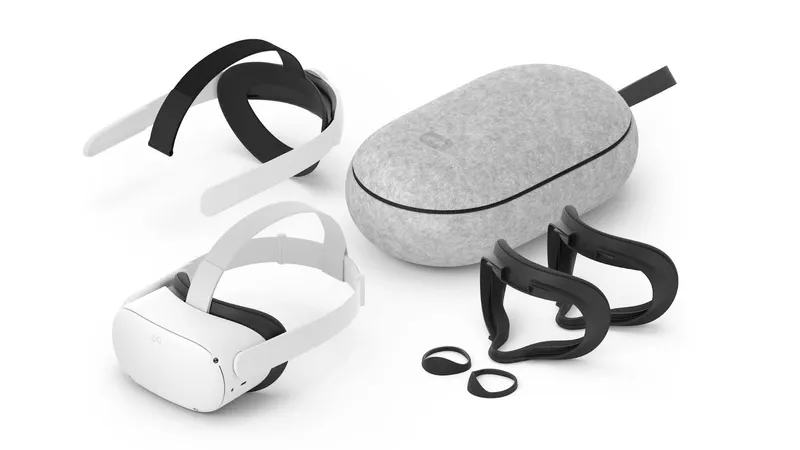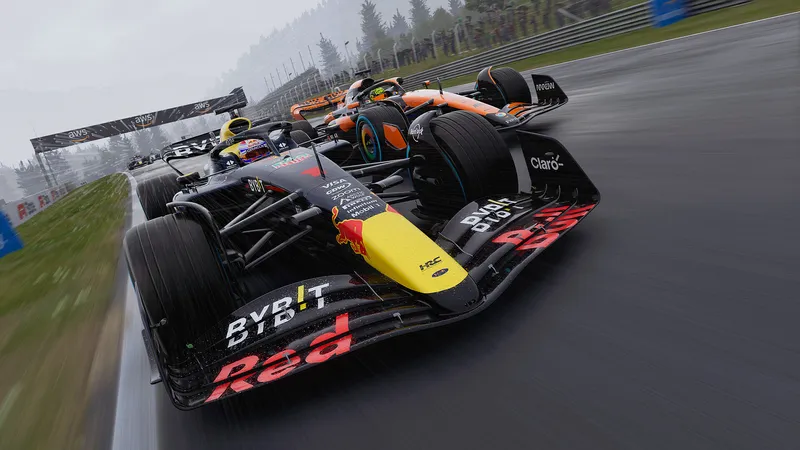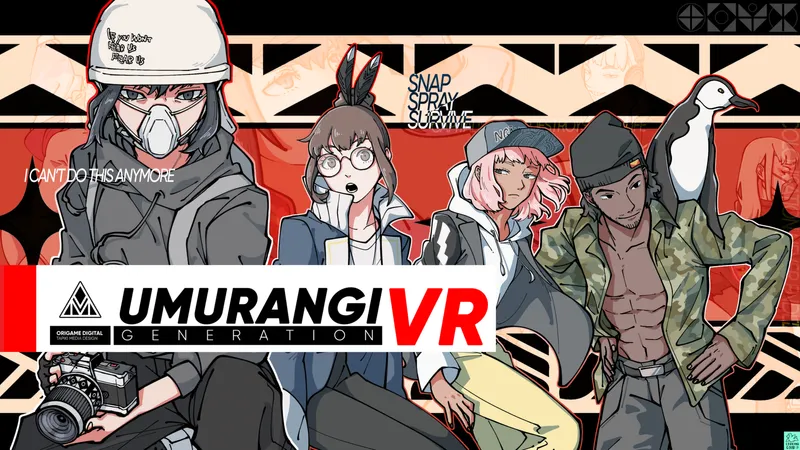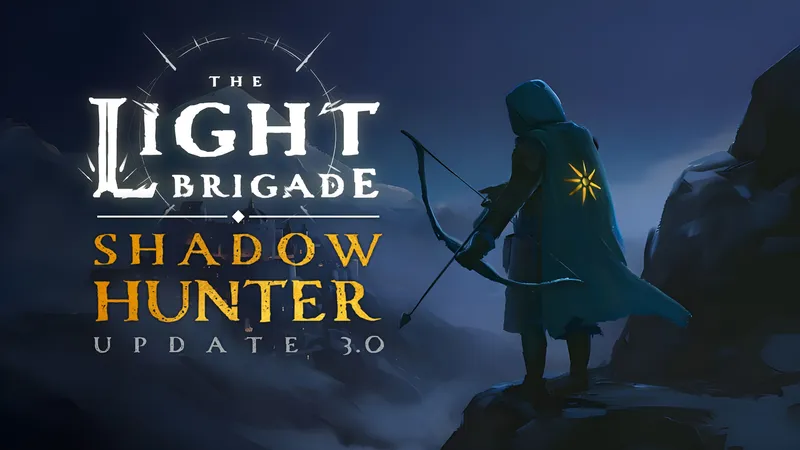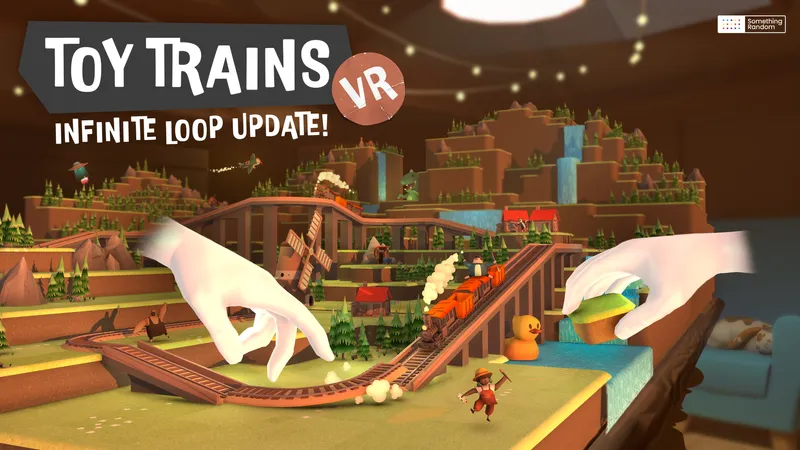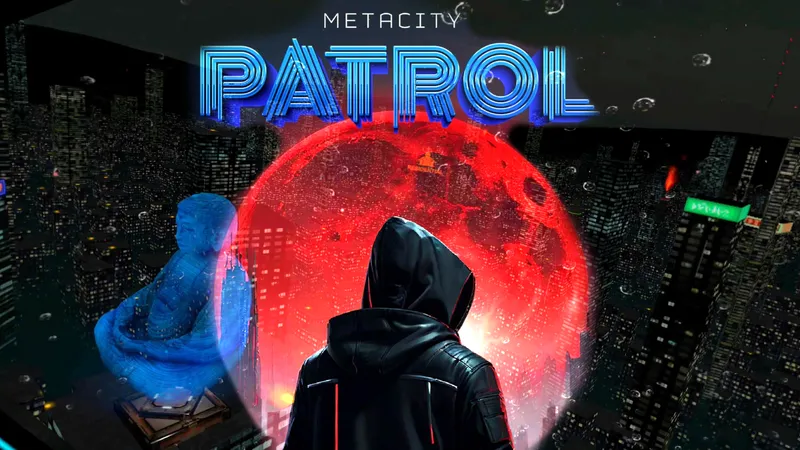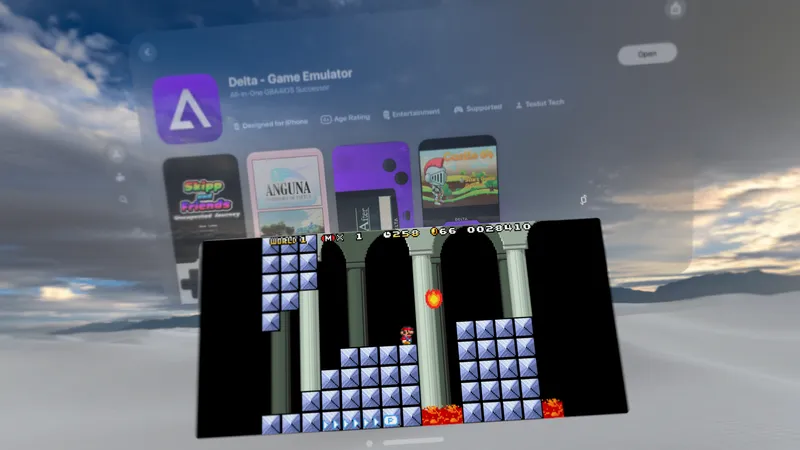At the end of June, a pretty significant Virtual Reality conference took place in Toronto, Ontario, Canada. VRTO, which we wrote about here, sought to be a little different from the typical VR conference. The lineup of guests was quite impressive and instead of just being a show that focused on the technical details of VR, or how-tos for developers (not that it was missing those either), VRTO’s mission was to start conversations around some of the bigger issues facing the nascent industry.
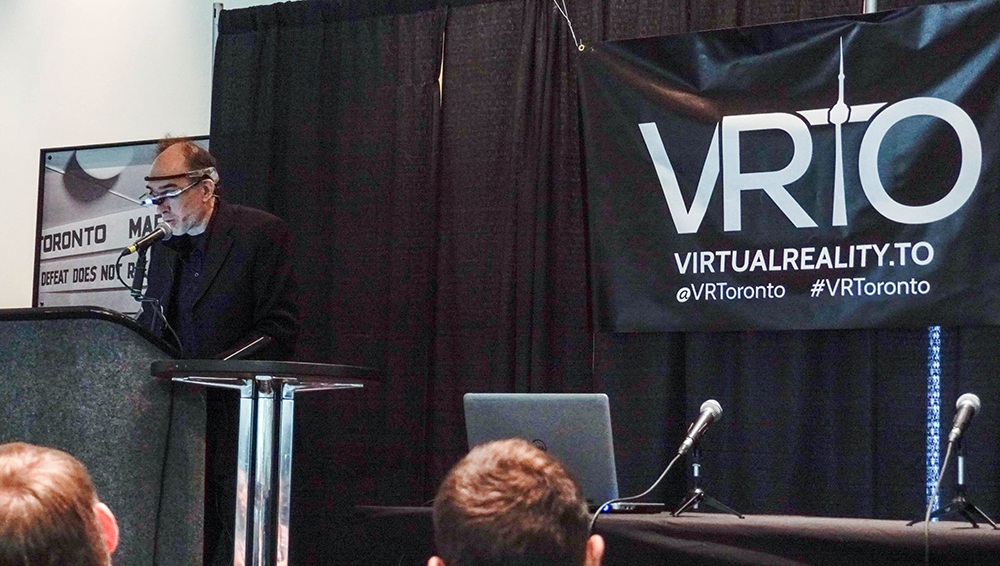
The first day of the conference started with a bang, with renowned academic professor Steve Mann, considered the father of wearable computing (and Meta’s Chief Scientist), presenting the “Human Augmentation Code,” that sets out three laws for AR and VR. When asked why we need them, Steve Mann said: “To protect us, future consumers and adopters, and society from machines of malice — whether eventually by AI superintelligence, or right now by corrupt human intelligence.” His presentation was followed by a panel where Mann, along with other contributors to this Code discussed it in depth.
One of the panelists and contributors to the code is Brett Leonard, director of The Lawnmower Man, one of the first films that introduced the concept of virtual reality to popular culture and a significant milestone in the history of VR. It is also notable for its use of real early VR hardware rather than Hollywood props, utilizing pioneer VR tech from Jaron Lanier’s VPL Research. Leonard took to the stage at VRTO for the afternoon keynote, where he talked about his work on the Human Augmentation Code, his history in VR and what he is currently working on, including Lawnmower Man Reborn, a transmedia sequel to his seminal film, and his own Five Laws of VR:
“VR LAW #1 – Take it seriously! – Don’t underestimate the potential power of Virtual Reality to greatly effect Actual Reality.
VR LAW #2 – VR must be designed to connect humans with more empathy and intimacy, not alienate them from each other to a greater degree than already exists.
VR LAW #3 – VR is a new paradigm – The rules governing VR must be organic to the medium itself, not simply modified from earlier paradigms of reality.
VR LAW #4 – VR must be the ultimate “safe space” to express ideas, even those that are considered “dangerous” – It is THE medium to express and experience the far reaches of human imagination!
VR LAW #5 – The stakes are high! – VR must be the medium to awaken the inter-connected consciousness and freedom of the emerging Global Human – If not, it could be the ultimate medium of Global Control.”
These five laws, though very applicable to the real world, were written for another project Leonard is working on, The Futurist. It’s a TV-series involving VR that he co-created with Rob Weiss, producer/writer of Entourage and Ballers for HBO. After his enlightening and entertaining presentation we got to sit down with Leonard and talk with him at length and you can read our in-depth interview below.
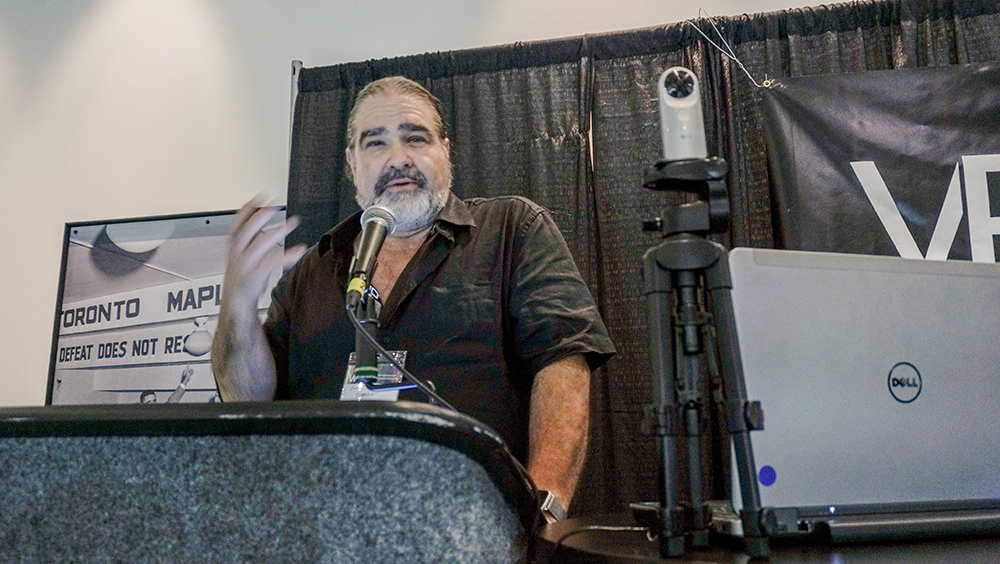
Upload: Although most people are most familiar with you from your role as the Director of both The Lawnmower Man and Virtuosity in the 1990’s, since then you’ve still been very active in the film and FX industry. Can you fill our readers in as to what projects you are working on right now?
Brett Leonard: I’ve started a company called Virtuosity Entertainment with my co-founder Scott Ross, who worked at ILM and LucasFilm for George Lucas, and created Digital Domain with James Cameron. We want to be the Pixar of virtual reality – a studio that will create next generation VR, really very, very high-end, high-engagement high-quality interactive StoryWorlds, that’s the product we’ll be creating.
We’re going to create tools and create content – and essentially a platform. We see the StoryWorld platform as one that many different interactive narrative experiences can exist within so, in a sense, we’re going to be creating Disneyland without the stories yet and then fill it with them. We’re going to create a protocol around virtual interactive narrative. Obviously, this is all still in the exploration stage – we’re not saying we know exactly what it’s going to be because no one knows. But we’re in touch with some of the most advanced [VR] technologies and we’re going to put together the planet’s “A-Team” to create what the next phase of VR will be.
Upload: There seems to be two schools of thought as to the current state of the VR industry. Some think that the consumer VR revolution is already here, but there are people who think that’s still a few years away and public VR experiences like The Void, and other VR Arcades, are going to be what drives the industry initially. What’s your position on this?
Brett Leonard: I think both are happening at the same time, and that one will inform the other. I think the arcade experiences are extremely valid – you get to see multiplayer interaction, but they [VR arcades] are going to be very focused in terms of the actual experience, the gameplay. A lot of shoot ‘em ups. There is a really good company called VRStudios out of Seattle — their brand is VRcade, and they have created something called Barking Irons which is an untethered multiplayer VR experience where you are in a western gunfight. A woman named Chanel Summers, who’s one of the [leading] experts on interactive sound and VR sound did the audio for the game and you feel like you’re in a John Wayne movie because of all the different audio cues. It’s a fairly high-resolution experience — the tracking is fantastic and the gunplay experience, aiming, has a lot of veracity.
Those kinds of experiences will be driving this transition phase as people start to understand what VR really is. I think that gamers will be the early adopters of consumer VR and those companies [creating content for consumer VR] are all creating games at the moment. So it’s going to be this mix between out-of-home and consumer VR [gaming] experiences at first but slowly seeping into the greater populous of people that will understand that there are overall [new] entertainment experiences that will be coming about because of Virtual Reality and then finally Augmented Reality.
It will be something that is in between gameplay and linear narrative, and this is what we’re focused on at Virtuosity Entertainment is this undiscovered country between gameplay and interactive narrative where there is a narrative experience, there is an interactive experience — it’s emotionally engaging like cinema but in an even more intimate fashion. We’re focused on looking at the technology that will allow that kind of development.
Upload: Speaking of VR arcades and VR in movie theaters, how do you get the younger generations, the millennials up off the couch and Netflix and into these public spaces to experience VR?
Brett Leonard: VR is the thing that’s going to do that. It’s how engaging VR is [when compared to traditional media] – it’s a generation thing, in a sense VR is the medium for the millennials and many of the people who are creating it are millennials. There’s a generational divide and in that it’s more difficult for those who are not millennials and older to really engage fully with VR because it’s so alien to their experience of media. I’m a strange case because I got involved with VR over 20 years ago when I made The Lawnmower Man, so I’ve been acclimating to it for a lot longer than other people in my generation.
I think [VR arcades are] what is going to get [millennials] back out into social experiences. I really believe that VR needs to be a social experience, even if it’s an in-home experience it will be a networked digital experience that will allow for multiple participants. The social VR aspect will drive everything I think, even in the context of experiencing a story.
Upload: It’s interesting that VR-skeptics say that VR is an isolating experience. While, yes, it in some aspects it physically is, when you add the element of social VR, when you’re able interact with people in VR in way that you can’t in any other kind of medium, it can be more social that other kinds of entertainment. When you’re playing a traditional flat game online you’re not interacting with and socializing with people in the same way you can in VR.
Brett Leonard: I think that VR is the next evolution of taking all of these things that have trained us to be interacting with digital devices and take us back to a connection with humans in a virtual space. I think that’s the hope of the medium. This is something I talk about that I want VR to be the medium of the Global Human, where we can just have a place to just be humans with each other as opposed to these sorts of abstracted versions. Now, we’re going to have abstracted versions of each other in VR, but it’s a more inherently intimate and experiential experience of other people.
In a way then, VR becomes much more social than any other digital media that has led up to it. I think there will be those that have an isolating and alienating experience in VR – that’s just going to be part of what happens. But I believe that what will drive it, even commercially, will be true social experiences where you can connect with people across geographic lines, gender lines, lines of culture, and any of the other barriers that keep us apart, including the Tower of Babel of language. VR is an experiential thing that is almost post-linguistic.
Marshall McLuhan talked about this in Understanding Media: The Extensions of Man that he wrote in 1964, that we’re going to go to this post-lingual culture where experience becomes something you can actually have with other human beings without having to have a translation device, without having to think about what are the cultural mores. Those things divide us and often lead to things like war. There is a potential where VR is the space where all humans on the planet can experience each other without the things that have triggered that primal separation.
Upload: There’s that well-known episode of Star Trek: The Next Generation [Darmok] where Picard’s trapped on a planet with an alien who’s language [“Darmok and Jalad at Tanagra”] they can’t translate [because it’s based on allegory]. Picard and the alien’s shared experience allows them to bond and understand each other. That episode is an excellent representation of how VR could help people from different cultures across the globe communicate.
Brett Leonard: Exactly! As an example, to talk about a political hot button right now is this idea that any one from an Islamic country is alien and dangerous to us in the West but in VR we could experience people without those cultural mores and realize that we’re just all humans together. It’s like what John F. Kennedy said in one of his last speeches at the American University, “We all breathe the same air. We all cherish our children’s future. And we are all mortal.” Those aspects of what I think of as the tenets of the Global Human I think can be embedded in the medium [VR] from the very beginning.
I think it’s incumbent on those of us who are creating content to really steer it in that direction because it does have a tremendous negative potential – obviously I’ve primarily told cautionary tales about virtual reality so I’m someone who will continue to tell cautionary tales and yet be hopeful and push towards what I see as an almost utopic use of the medium.
Yesterday [at VRTO] during the ethics [in VR and VR] panel someone said that view is incredibly naive, but I agree – we have to be naïve, we have to go back to a kind of child-like wonder about connection with humans, connection with an imaginary space. In a way when we are children everything is virtual reality. We think of the world as something completely mutable and creatable, and this [VR] allows us to go back to that child-like state, and I think there can only be a positive for humans to connect in that way because when we’re children, we’re not at war.
Upload: Technology is supposed to be apolitical, but when you talk about virtual reality in this sense and its power to transform on a global scale, there must be forces out there who are very scared of how VR could change the world.
Brett Leonard: Well, it changes the nature of representative democracy, for example. Imagine if we were having the current US Presidential campaign in virtual reality. I think you’d instantly get a more palpable feeling of disgust from someone like Donald Trump than experiencing his views through tweets, which can be this abstracted version of him that connects to certain hot-button issues for primarily an ignorant populace who don’t understand that he’s just a big hustler.
I think that VR does change the nature of political systems very radically and I think it is a revolution, and I think that making it something that is connected to this idea of the decentralized web.
Upload: Artists have to have control now [of VR] before someone comes and takes it away from them…
Brett Leonard: Yes, because right now Facebook and Google are the gatekeepers. They own VR right now. So without the decentralized web, without the metaverse being built out in a much more egalitarian sense it is, I think, an inherently dangerous medium. But it is also inherently radically revolutionary and evolutionary if we are allowed to connect with humans [in VR] and create in play in it, in a way that is untethered and un-curated.
Upload: You mentioned in your talk that you were told by people in the U.S. government that they are exploring some of the negative uses for VR, such as virtual torture. Just thinking about the concept of that freaks me out but at the same time, I can see how it would be very effective. I also read an article recently about the U.S. prison system can be reformed by using VR – give prisoners HMDs so they can stay in their cells instead of being out in the yard and potentially getting shivved, along with feeding them Soylent instead of awful prison food. That sounds like…
Brett Leonard: …that’s a dystopian nightmare! But World War 2 happened, Hitler did exist – there are things about human nature that will be expressed through a medium like VR, and we just have to hope that the more positive expressions outweigh the negative ones and if we do have a decentralized way of accessing VR it will self-regulate in a way that will surprise people. It’s going to be such an inherently powerful medium that in a way the negative experiences will isolate and silo themselves just by the fact that only a certain percentage of humans will want to participate in them.
Upload: It is positive that there are already conversations about these issues happening in the industry now at events like VRTO across the globe. It makes me feel that there is hope.
Brett Leonard: Yes, we just ratified the Toronto Code with Professor Steve Mann [at the VRTO Conference], who’s a legend in the virtual and augmented reality universe — and look it’s a starting point, it’s a discussion point, it’s a living document, it’s going to be something that’s discussed and changed by many people over time, but we’ve started the discussion. We’ve put a tentpole in the ground and said that this is something we must consider, and I think that it’s great that it happened here in Toronto.
I think it’s a very unique city in terms of how people here think about media – obviously people like Marshall McLuhan came from this area [his work on media theory was done in Toronto, but he was born in Edmonton] so it’s a really hopeful sign that there is a group that is talking about this right now before [VR and AR] become ubiquitous.
I saw what happened with Hollywood history – film wasn’t looked at as a powerful medium, just powerful enough to make money and the entire focus of that medium in the Hollywood context has been that, and yet it [Hollywood films] creates global culture and affects humans globally on a massive scale.
Upload: The average Hollywood superhero blockbuster is viewed by millions upon millions across the world…
Brett Leonard: Yes, it’s unfortunate that we’ve contracted down to one kind of movie that Hollywood makes. It’s almost sort of a joke that there’s only one kind of story that works globally. I think that’s ridiculous, and that’s because it’s the kind of story [studios] feel comfortable making. In VR it’s a new medium, and there are already experiments being done in it that are much more radical in terms of their expressiveness and what they are exploring.
That happened at the beginning of cinema as well, but it was choked out by the business side. That’s something that can change in VR because it can be an explorable space for so many people and so many different business models can be connected to it that are viable that will keep it alive. Look, it’s incumbent on the creators, people like myself and others in the slipstream of VR, to keep talking about this, bringing this subject up and dealing with it in the content we create and pushing it forward.
I have a 21-year-old son, and this is for him, it’s for his generation. I’m at a point where I am mentoring now and what’s important for me is to leave a legacy of looking at these issues [with VR]. I happened to create something early on that both excited people about the medium and gave them pause about it. I’m still going to do that because there’s value in a storyteller being part of that conversation but what I’m encouraged by is the fact that so many others, like the speakers at this conference, have been focused on this aspect of VR. Not all the VR conferences do this – there’s a lot of VR conferences that are focused purely on the tech, money, and business models.
VRTO had a broader and more interesting focus for me – sometimes you’ve got to get out of America to get that happening because it’s such a reductionist capitalist culture at this point. I also went to Denmark recently and had great conversations there, a socialist democracy, around VR and this idea of it being a medium for the Global Human. They really got that and many of the young people I talk to get it as well – they realize that there is great potential in this new medium and also that there is a great potential for negativity as well, and that the stakes are high. That’s my first law of VR that I wrote in a fictional context, is that the stakes are high – take this medium seriously and do not underestimate the ability of virtual reality to affect actual reality.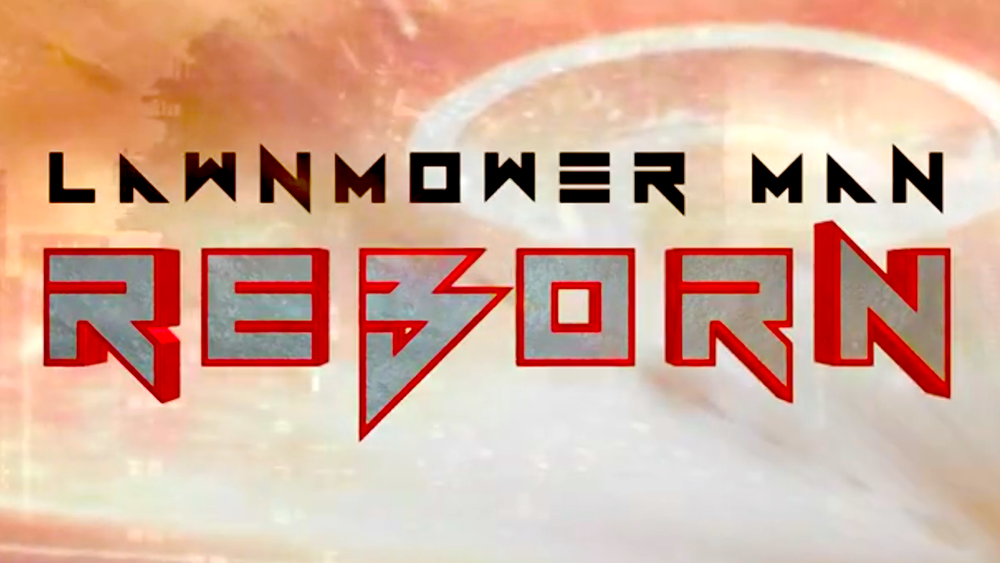
Upload: Can you tell us a bit about your project Lawnmower Man Reborn?
Brett Leonard: Lawnmower Man Reborn is a project that I’ve been working on for several years. It is going to be a feature film that is a follow up to The Lawnmower Man, but I want to create it as virtual narrative environments first but then lead up to the experience of the feature film. I want to make the film as immersive a film as possible, for example using [VFX Legend] Doug Trumbull’s [4K 3D 120 fps] MAGI process that Ang Lee just completed a film in.
Upload: To finish up our talk, I wanted to rewind and take a trip down memory lane. You’ve been involved with VR for quite some time, working with some of the early pioneers like Jaron Lanier…
Brett Leonard: He introduced me to VR…
Upload: So how did that happen?
Brett Leonard: I was a kid from Toledo, Ohio who came to California to make it in the film business and I landed in Santa Cruz, California, and it happened to be where a lot of people in the burgeoning tech industry, people like Wozniak and Jobs, would come to party. So I ended up, as a 20-year old, hanging out at these parties with people like Jobs and Wozniak, and people like Jaron Lanier and many others who were part of that digerati that was exploding at that time. It really affected the direction of my career and the direction of my life – I was tossed into this maelstrom of innovation and people talking about subject matter we are still talking about today, it’s just that the technology hadn’t caught up to many of the ideas back then.
At that time none of us thought that Apple was going to be the biggest company on the planet – there’s this sort of, for me, an almost crazy absurdity looking back at that time and thinking about the bunch of super-nerds hanging out and smoking weed, and now they’ve changed the world. I think that VR is going to be the most powerful version of that change. That’s how I got involved, I happened to land in the place, at a young age, where all that was going on.
Upload: And those experiences eventually led to The Lawnmower Man, which I read was originally called Cyber God…
Brett Leonard: No, it actually wasn’t, that’s a misnomer, The Lawnmower Man was always called The Lawnmower Man. It was a short story by Steven King that had nothing to do with Virtual Reality. I had made a zombie movie called The Dead Pit, which was my first film as a director, and the people that owned the right’s to the [Steven King] short story came to me with an idea where the main character was a lawnmower man who chopped women up for fertilizer, literally the most heinous idea for a movie ever, and I told them I wasn’t interested in that. But I told them that I could take this idea of this idiot savant lawnmower man in a town where there is a VR researcher, kind of like Jaron Lanier but played by Pierce Brosnan, and he was going to use both virtual reality and neurotropic drugs as a transformative way of changing [the idiot].
It was a mix between Frankenstein and Flowers for Algernon, which were the original inspirations for The Lawnmower Man story, but using VR and neurotropic drugs together to transform someone into a superhuman, and then, of course, he literally becomes data, he becomes a networked human being, which, I think, the first time that ever happens in a story, well, on film at least. I was also influenced, of course, by William Gibson and many other science fiction writers. So I grafted this on to the original short story – which ended up only being one scene in the film where the lawnmower is telekinetically controlled by the character Jobe to mow down this abusive husband. That scene was the only one from The Lawnmower Man short story – everything else was created from whole cloth, but somehow it got out that I had a script called Cyber God and I merged it the short story. We may have thought of Cyber God as an alternate title at some point…
There’s a whole history about what happened with Stephen King – he saw and liked the movie and supported me but he sued New Line [Cinema] to take off that it was “from the mind of Stephen King.” King said it wasn’t from his mind, even though there was some of his short story in the film – it’s really from your [Leonard’s] mind, so he didn’t want them to use that to promote the film. It was a precedent-making case because usually in Hollywood if you buy the rights to something you can say anything you want about it. He actually won, and they had to take all the home videos back and change the packing, which I thought was kind of funny. I warned them, I literally thought that if I was Stephen King and I saw something that was so radically different that my original creation I would feel the same.
Upload: One of the interesting things about The Lawnmower Man is that you used actual VR hardware from Jaron Lanier’s VPL Research – none of the technology in the film is made up, well apart from perhaps the haptic suits and rigs.
Brett Leonard: But if you look at the haptic rigs and suits [from the film] they are being copied today. You design something for a movie, and it ends up affecting the real world pretty significantly. Alex McDowell was the film’s production designer, it was his first film, who went to be the production designer on Minority Report, and his designs really stood the test of time with hardware coming out now looking somewhat similar.
The Lawnmower Man was the first film to ever use the term Virtual Reality – no one called it Virtual Reality before then. Of the two earlier films that come to mind, TRON was not really VR because you were going into a computer, but Brainstorm was similar because it had heads up displays and was recording your brain. Both were different [to The Lawnmower Man] but still inspirations for me.
It was a time where I saw that this technology [VR] was actually going to happen, I thought it was going to happen faster – at the beginning of the film it says “by the turn of the millennium we will have” but it turns out that didn’t quite happen in reality, it took about 15 years more. It’s interesting to look back at the film now and see that there are VR experiences that are being created now that are similar to some of the experiences we showed in The Lawnmower Man.
Upload: To me, haptics is the next big hurdle that has to be jumped over, and I think we are still pretty far away from full-body immersion in VR.
Brett Leonard: It’s a challenge, but there’s a lot of companies working on it, and of course the porn-space is going to be where the innovation [in haptics] is going to be pushed.
Upload: After The Lawnmower Man we had a couple of years of a number of Hollywood films featuring VR – there was that one scene in Time Cop, and then the Michael Douglas film Disclosure had that ridiculous VR technology…
Brett Leonard: …that was literally put in because when The Lawnmower Man came out, it did amazingly well, it was the number one independent film of 1992 and it didn’t cost that much. So it affected a lot of movies of the 90’s – Disclosure was the most noticeable, I mean I went to see it and was laughing my ass off through the whole thing, it had a really stupid representation of VR, it was horrible.
Upload: Then after a few years of VR being featured in a lot of Hollywood films, and being promoted in PC gaming magazines and the like it felt like it almost suddenly disappeared, from both movies and in reality.
Brett Leonard: Because the real [VR] experience never came close to what we were showing in the films. Technology had to catch up, and we had to wait for the smartphone revolution to provide us with technology that can take us into a true virtual world.
Speaking of smartphones, global culture has really been changed by them, in some ways negatively, it’s isolated us more I think, and that’s why some think VR could isolate us even more. While there is the potential for that, I think also the very nature of VR is about human connection and is what should make people excited about it. These out of home experiences [VR Arcades etc.] will be good examples of communal VR experiences with social interaction. I truly feel hopeful that VR as a medium will be part of the evolution of human communication.
—————————–
Just like our talk with Atari co-founder Nolan Bushnell, talking to Leonard clearly shows that this second coming of VR has really reinvigorated the creativity of those involved in the early days of the VR industry. Moreover, their many years of experience lends them insight and wisdom that those who’ve only recently become involved don’t have. Leonard is both making important contributions to things like a code of ethics for AR and VR and working on what looks like to be some exciting VR experiences.
The VRTO Conference returns in June 2017, but before then its organizers are hosting FIVARS, the Festival of International Virtual and Augmented Reality Stories, a 360-video festival started in 2015. This year’s FIVARS take place from September 15 – 18 in Toronto.

